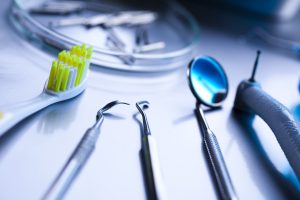The dental attorneys at Nardone Limited in Columbus, Ohio routinely prepare buy-sell agreements for our dental clients. It is important for partners in a dental practice to properly plan for the transition of their dental practice upon the occurrence of unforeseen life events—such as death, divorce, disability, bankruptcy, etc.—and also for certain planned events like retirement. In our previous article entitled Methods for Establishing the Purchase Price under a Buy-Sell Agreement, we discussed various options for determining the purchase price for the selling doctor’s ownership interest upon the occurrence of a “triggering event.” For instance, we discussed the pros and cons of using a predetermined purchase price at the time of entering into the agreement, versus using a predetermined formula that establishes the purchase price at the time of the triggering event. While agreeing on the method for determining the purchase price is imperative, it is equally important to memorialize how that purchase price will be paid.
Life Insurance
A partner’s untimely death can leave a dental practice in a very difficult financial position, as the remaining partners and associates are often required to increase their productivity to cover the practice’s fixed overhead expenses. Compounding the problem is that in most instances, the remaining partners or the practice will be required to come up with hundreds of thousands of dollars to buy the deceased doctor’s interest from his heirs or estate. This problem can be alleviated by providing for a promissory note under the buy-sell agreement, which will allow for the purchase price to be paid out over time. But, even with a promissory note, the dental practice or the remaining partners will be faced with an unexpected financial burden and large monthly payments. To avoid this financial burden in the event of a partner’s death, it is generally advisable to fund all or part of the remaining partner’s or the practice’s purchase obligation with insurance proceeds. It is common for partners to finance their purchase obligations by use of a cross-purchase structure—meaning each partner will own a life insurance policy on the other partner’s life. Upon the death of an owning doctor, the insurance proceeds received by the remaining doctor(s) or the practice will be used to satisfy their purchase obligation.
Promissory Notes; Cash-on-Hand Requirement
While life insurance can resolve the financial burden that results from a partner’s death, and allow for immediate payment of a deceased member’s family, what can be done to alleviate the financial burden that would result from other triggering events? For instance, there is no insurance that would cover a partner’s divorce or bankruptcy. As mentioned above, most buy-sell agreements address this issue by requiring the purchase price to be paid out over a period of months, or possibly years, pursuant to a promissory note. The repayment term under the promissory note is something that the partners must agree to up-front when entering into the buy-sell agreement.
Additionally, there are times when it may be more advantageous from a tax perspective to treat the buy-out of a partner’s ownership interest as a redemption by the dental practice entity, as opposed to a purchase by the remaining partners. Most buy-sell agreements will give the remaining owners and the practice the option of treating the buy-out as a redemption or a purchase. In the event a redemption by the dental practice entity is more favorable from a tax perspective, then the dental practice would be the obligor under the promissory note. That is, the dental practice would use its cash flow to make the monthly payments under the note.
This monthly payment obligation could potentially cause cash flow problems for the dental practice. One way to protect against these cash flow problems is to include a cash-on-hand requirement, where the practice’s payment obligation under the promissory note will be suspended or deferred in the event the practice’s cash-on-hand falls below a certain threshold amount. For instance, if a dental practice knows that it needs a cash reserve of $200,000.00 to cover three months of operating expenses, and monthly payments under the promissory note are $7,000.00, then the practice may set its cash-on-hand requirement at $207,000.00. If during any month the practice’s cash-on-hand falls below that threshold amount, then payments under the promissory note would be suspended, without accruing interest, until the practice’s cash-on-hand is replenished above the threshold amount. At that time, payments under the note would resume. This will ensure that the practice’s payment obligation under the note will not cause the practice to fall off the financial cliff.
Contact Nardone Limited
If you are starting a new dental practice with a partner or are buying-in to an existing dental practice, the experienced dental attorneys at Nardone Limited will assist you and your practice to ensure you are setting the proper legal foundation for a successful partnership. If you would like more information regarding your dental practice partnership, contact Nardone Limited.

 Vince Nardone Discusses Employment Contracts with Ohio State Dental Students
Vince Nardone Discusses Employment Contracts with Ohio State Dental Students  Navigating the 2024 Landscape: Strategies and Considerations for Dental Support Organizations (DSOs)
Navigating the 2024 Landscape: Strategies and Considerations for Dental Support Organizations (DSOs)  Sellers of Dental Practices to DSOs need to have a Buyer’s Mentality Requiring Selectivity and a Well-Thought-Out, Decision-Making Process
Sellers of Dental Practices to DSOs need to have a Buyer’s Mentality Requiring Selectivity and a Well-Thought-Out, Decision-Making Process  Increasing Profitability by Minimizing Disruptions within Your Dental Practice
Increasing Profitability by Minimizing Disruptions within Your Dental Practice  As a Dentist, What Are My Obligations Related to Out-of-State Patients and Potential Prescription Drug Abuse?
As a Dentist, What Are My Obligations Related to Out-of-State Patients and Potential Prescription Drug Abuse?